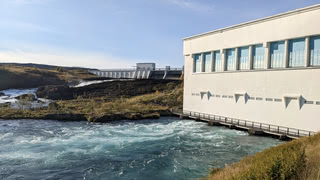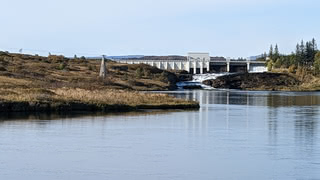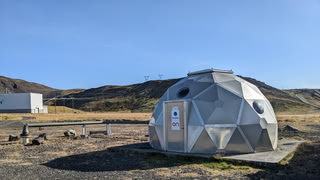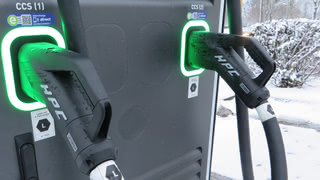The Trouble with European Green Electricity Certificates
Electricity companies from Iceland and Norway sell green electricity certificates (Guarantees of Origin) while their customers advertise using the same renewable energy. After a temporary ban on certificate exports from Iceland, the responsible Association of Issuing Bodies (AIB) has permanently lifted that ban and does not plan any further action.
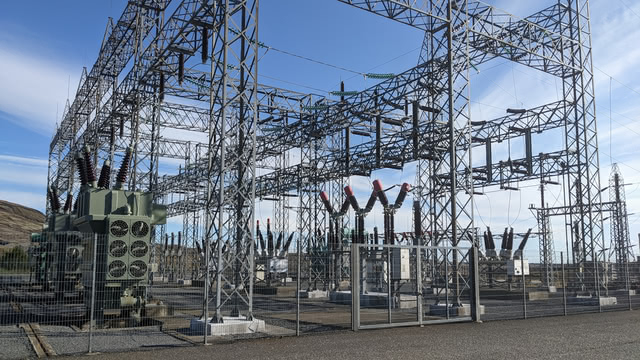
European electricity companies can sell green or renewable energy to their customers using certificates called Guarantees of Origin. In countries with electricity systems almost entirely powered by renewable energy, like Norway and Iceland, local companies that consume electricity without such certificates often still claim to produce with renewable energy.
Such double claiming of renewable electricity is widespread, and it has led to a temporary ban on exports of Guarantees of Origin from Iceland by the responsible Association of Issuing Bodies (AIB). But AIB has now announced that it has no plans to reinstate the ban. The problems of double claiming remain unsolved.
Iceland produces its electricity almost entirely from hydropower and geothermal energy. Iceland also generates and consumes a lot of electricity relative to its population. The hydropower and geothermal plants generate around 50 megawatt hours per person and year, approximately eight times as much as the European Union average.
Clean Electricity and Lowest Energy Prices
It results from a strategy to bring energy-intensive consumers into the country. In 1995, the Icelandic Energy Marketing Unit MIL published a brochure titled "Lowest Energy Prices".
It advertises Iceland as an attractive place for energy-intensive industries with large amounts of cheap and clean electricity: "Power-intensive industries using these environment-friendly power resources for making manufactured products contribute towards protecting the global atmosphere and at the same time do wonders for their own corporate environmental image."
The offer was well received, particularly in the aluminium industry. Aluminium production requires large amounts of electricity. Today, three aluminium smelters in Iceland consume around 12 terawatt hours of electricity annually, more than half of the country's electricity production.
The strategy to build large power plants to attract industrial customers was not uncontroversial in Iceland. The construction of Landsvirkjun's Kárahnjúkar hydropower plant, Iceland's largest power plant today, was one of Iceland's most controversial infrastructure projects. It was built almost entirely to power Alcoa's nearby Fjarðaál aluminium smelter.
Landsvirkjun built Kárahnjúkar despite protests, it started operating in 2009. But the controversy changed Iceland's energy policy. A fourth aluminium smelter was never finished, and in an announcement made in 2022, Landsvirkjun writes that it "will for the time being not focus on attracting new large-scale customers in the metal industry or other industrial commodities."
Iceland introduces Guarantees of Origin
Guarantees of Origin are regulated in the EU's renewable energy directive (RED). As it is impossible to trace the source of electricity in a grid, electricity sales do not represent actual physical flows of electricity. However, Guarantees of Origin do not even have to be connected to electricity sales.
An operator of a renewable power plant can receive Guarantees of Origin for its electricity and sell them to companies that use them to market green electricity to their customers. It does not require any physical relationship between the generating source and the customer.
Iceland is not part of the EU, but it is part of the European Economic Area (EEA). As such, Iceland has implemented many EU regulations. It implemented the renewable energy directive in 2012. Landsnet, the regulatory body responsible for issuing Guarantees of Origin in Iceland, joined the Association of Issuing Bodies (AIB). AIB coordinates the issuance and exchange on a European level.
Therefore, Iceland's electricity companies can sell Guarantees of Origin to other EU and EEA countries - although the country has no electricity grid connection with the European mainland.
Early on, there were already concerns about double counting. Imports from Iceland were temporarily banned in Flanders (Belgium) Flanders and the Netherlands in 2012. In response, Iceland implemented a law to clarify how electricity sales must be communicated to customers.
Guarantees of Origin and similar certification schemes are controversial for multiple reasons. Customers of a green electricity tariff will usually expect that they are supporting the buildout of renewable electricity. But it is doubtful that this is the case.
If electricity is declared green by selling certificates from old power plants that often existed before Guarantees of Origin were introduced, it is hard to argue that this supports renewable energy development. This is usually referred to as a lack of additionality.
For a previous article, I interviewed Matthew Brander, a scientist at the University of Edinburgh researching carbon accounting. He told me there is no empirical evidence that green electricity certificates support new renewable energy. Brander has published multiple scientific papers on these issues and collects links to relevant research on his web page.
More than 100% of Iceland's Green Electricity is claimed
Iceland exports Guarantees of Origin in large quantities, and the amount is growing. In 2021 and 2022, net exports were around 15 terawatt hours. Overall, Iceland produces approximately 20 terawatt hours of electricity per year.
Electricity customers in Iceland who do not receive Guarantees of Origin nominally receive an electricity mix with more than 60 percent fossil fuel energy, and this information is on their electricity bill. Of course, that is a physical impossibility, but in the logic of Guarantees of Origin, physical flows do not matter.
The three aluminium companies consume around 12 terawatt hours. All of them advertised that they use renewable energy or hydropower. While it is not easily possible to determine whether specific companies receive Guarantees of Origin - the system is highly intransparent - it is indirectly clear that more green electricity is claimed here than produced. 15 terawatt hours for exported Guarantees of Origin and 12 terawatt hours for clean aluminium production are already substantially more than the 20 terawatt hours of Iceland's total electricity production.
Only one of the aluminium companies talked to me. I interviewed Ole Løfsnæs from Alcoa, the company operating the aluminium smelter powered by the previously mentioned Kárahnjúkar hydropower plant.
Løfsnæs was upfront that Alcoa does not use Guarantees of Origin. Alcoa uses location-based accounting according to the Greenhouse Gas Protocol. That means they only consider the electricity mix within a country and ignore market instruments like Guarantees of Origin.
The Greenhouse Gas Protocol is an international standard for companies' emission reporting. According to its guidelines, both marked-based and location-based electricity mixes should be reported by companies. In practice, companies usually communicate the more favorable number. The Greenhouse Gas Protocol is currently updating the relevant guidelines and has received over 200 change proposals.
Some may accuse the aluminium companies of greenwashing. But given Iceland's marketing around clean energy, their position is quite understandable.
These companies were asked to move their energy-intensive production to Iceland specifically with the promise that they would receive plenty of cheap and clean energy - and improve their environmental image. It happened years before Guarantees of Origin were introduced.
Alcoa has a contract with the electricity provider Landsvirkjun about electricity from the Kárahnjúkar power plant. Years later, Landsvirkjun informs them that their electricity from a hydropower plant is nominally no longer hydropower - unless they purchase Guarantees of Origin on top.
On a European level, the Association of Issuing Bodies (AIB) coordinates Guarantees of Origin. AIB initially reacted with a surprising admission: They knew about this situation for a long time.
"Since multiple years, AIB has been striving to strengthen the Icelandic disclosure measures, including talks to suppliers and the regulator, and the Icelandic government has been informed of the situation", wrote Liesbeth Switten, Secretary General of the AIB.
In late 2022, I published an article on the situation on the German news site Golem.de.
Assessment panel saw Landsnet in violation of EECS rules
In response, AIB formed an internal panel. AIB did not publish the report from the assessment panel, but it was possible to access it via Icelandic freedom of information laws.
AIB's members must comply with the European Energy Certificate System (EECS) rules. (Notably, these rules are changed regularly, and old versions are not publicly available.)
AIB's assessment panel had to evaluate whether the situation in Iceland violates the EECS rules. It asked whether Landsnet, the Icelandic electricity grid operator, should have stopped issuing certificates for electricity already claimed by other entities. The report saw Landsnet in violation of multiple EECS rules.
In its conclusion, the panel writes: "If there is known use of location-based allocation as a form of disclosure, even if it is not explicitly done, then Rule C3.3.1 requires an issuing body not to issue a GO for the energy involved." The referenced rule C3.3.1 says that Guarantees of Origin should only be issued if the respective electricity output has not been otherwise "disclosed".
The panel also concluded that Landsnet failed to implement appropriate mechanisms to avoid such scenarios, pointing to another EECS rule (E3.3.14): "Implementing appropriate mechanisms should as a minimum include suspending issuing and a referral of the matter to the competent body for resolution. From the discussion with Landsnet it is not evident that such appropriate mechanisms have been implemented."
Subsequently, on April 28th, 2023, AIB announced that it would suspend exports of Guarantees of Origin from Iceland. Shortly afterward, the German environmental agency (UBA, Umweltbundesamt) announced it would no longer accept Guarantees of Origin from Iceland. Germany is the largest market for Guarantees of Origin.
In response to AIB's decision, Landsvirkjun wrote in a press release: "Essentially, it is a case of illegal false and misleading information in advertisements and other materials and the government has failed to react to this growing issue."
This statement is remarkable, considering that the energy-intensive companies are not the only ones advertising their sourcing of renewable energy. Landsvirkjun regularly makes statements like this in its own marketing: "Aluminium manufacturing in Iceland has one of the lowest carbon footprints worldwide, mainly due to the fact that it is produced with renewable energy."
Export ban lasted only around a month
The decision by AIB to suspend exports did not last long. On June 1st, AIB announced that it would temporarily lift the export ban. In its press release, AIB wrote that "the situation is not yet resolved."
While AIB lifted the ban, the German environmental agency UBA upheld its decision for longer. In June, an Icelandic delegation, including the Minister for the Environment, Energy and Climate, Gudlaugur Thór Thórdarson, and representatives from Landsvirkjun, visited Germany. During this visit, talks with the German Ministry for Economy and Climate (BMWK) on the matter took place. In late July, UBA lifted the ban.
In November 2023, AIB announced that it would not reinstate the ban. AIB's press release does not explain this decision.
The company Norðurál has adjusted the wording on its webpage. Not much has changed otherwise.
When asked about the decision, AIB's Liesbeth Switten wrote in an e-mail: "Over summer, Landsnet have worked hard together with Icelandic authorities to meet this rectification order and on November 10th our Board decided to follow the advice from our assessment panel that the requirements had indeed been met. The Icelandic authorities are now taking this issue further within Iceland, but for us, the compliance assessment is closed."
In its June press release, AIB wrote that the assessment panel should assess, among other things, "whether double counting and double claiming is effectively avoided." It remains unclear how AIB sees that fulfilled.
Shortly afterward, the Icelandic energy regulator Orkustonun published a report on the issue.
It's Double Claiming, not Double Counting, so it's Okay
Orkustonun's report concludes that Iceland is compliant with the EECS rules. It relies primarily on one argument: The situation in Iceland is not double counting. Instead, it is double claiming: "This double claiming does not constitute a breach of EECS rules as the rules do not address end user claims or statements."
The subtle distinction here is that, by this interpretation, double counting is a situation where the same Guarantee of Origin is used twice. However, what is happening is that an electricity company is using a Guarantee of Origin to sell green electricity, while the energy-intensive companies within Iceland advertise the use of renewable electricity outside the system of Guarantees of Origin. Therefore, by this logic, it is double claiming, not double counting.
Orkustonun's report clearly states that double claiming is happening: "While energy intensive users in Iceland claim to use renewable energy, none of them have Guarantees of Origin to fully back such claims, as of disclosure for 2022."
The report mentions a regulation in Iceland that requires companies to base statements on electricity consumption on what their energy supplier discloses (757/2012). "The power intensive users are therefore in breach of an Icelandic regulation but not AIB's framework nor EU rules."
Orkustonun writes that it has no authority to enforce this regulation. "There are no specific provisions on how to deal with cases where electricity consumers, who do not purchase Guarantees of Origin, refer to the location rather than declarations from electricity companies regarding the origin of the electricity they use."
The report also mentions that the organization "has not received any information indicating that monitoring of information disclosure to end users is being carried out in other European countries."
While not mentioning an explicit country, it hints at similar problems in other countries.
Three analyses confirm Double Claiming in Norway
Norway's electricity system is in many ways similar to Iceland's. It is almost entirely powered by renewable electricity, mostly hydropower, and many electricity-hungry industries are located in the country. Like Iceland, Norway is a member of the EEA. Unlike Iceland, Norway has electricity grid connections with other EU countries.
Norway is the largest exporter of Guarantees of Origin in Europe. Net exports were around 87 terawatt hours in 2022. Approximately 40 percent of Europe's net exports are from Norway. (Total exports are even higher; Norway also imports a lot.)
Three independent analyses have found double claiming of Norwegian renewable electricity. Like in Iceland, many companies in Norway use location-based accounting in their advertisement and do not receive Guarantees of Origin. This was noted by Oslo Economics for the Norwegian Ministry of Petroleum and Energy in 2018. The publication is in Norwegian. It has not been widely recognized internationally.
In 2021, the Austrian electricity company Verbund commissioned a legal opinion. The German law firm Becker Büttner Held confirmed the issue and concluded that the German environmental agency (UBA) should reject Guarantees of Origin from Norway. UBA did not share that conclusion. (This document was eventually published due to a freedom of information request on the web page "Frag den Staat").
The German organization FfE (Forschungsstelle für Energiewirtschaft, Research Center for Energy Economics) further confirmed the issue in 2023. FfE looked at the five largest electricity consumers in Norway. All five companies advertise the use of renewable electricity. Their combined electricity consumption is higher than the amount of renewable electricity in Norway not exported via Guarantees of Origin.
In some sense, the situation in Norway is even more problematic: Electricity customers in Norway nominally receive 70 percent of fossil fuel electricity, but the electricity bills do not contain that information. They merely reference a web page where this information can be found.
This begs the question of why AIB created a panel and issued a temporary ban on Icelandic Guarantees of Origin, but never acted on the situation in Norway. "We are not assessing Norway regarding double counting," wrote AIB's Liesbeth Switten to my questions without further explanation.
Given Norway's role in the Guarantees of Origin market, excluding the country from the system would have severe consequences. In the near term, it would be impossible for many green electricity companies to receive sufficient amounts of certificates.
Norway's current government originally had plans to exit the Guarantees of Origin system. Some Norwegian companies would prefer this. It would remove any concerns about double claiming. However, a Norwegian exit from the Guarantees of Origin system will probably not happen anytime soon.
Guarantees of Origin may become more important
The fact that the current system of Guarantees of Origin allows counting the same electricity twice questions the system's usefulness, in addition to more fundamental concerns like the lack of additionality. Nevertheless, the use of Guarantees of Origin may increase.
Claims from companies about sustainable or even climate-neutral business practices often rely on carbon offsets, which have come under increasing scrutiny lately, as many of these offsets are of questionable origin. But arguably, green electricity certificates are even more problematic than carbon offsets, yet they do not receive the same scrutiny.
A scientific paper published in Nature Climate Change (Bjørn et al. 2022) argued that renewable energy certificates "threaten the integrity of corporate science-based targets" for emission reduction and specifically calls out the Science-Based Targets Initiative (SBTi), an organization that defines standards for companies to set emission reduction targets in line with climate science. The SBTi recently finished a call for evidence using certificate schemes.
With increased climate ambition in the EU, proper emissions accounting will become more critical, and Guarantees of Origin interact with many other regulations.
Green hydrogen, produced in electrolyzers with green electricity, is a major part of the EU's climate strategy. For the electricity used for hydrogen production, the EU intends to have stricter rules that include additionality criteria and will not rely purely on the existing Guarantees of Origin system.
The regulation, laid out in the delegated act for renewable fuels of non-biological origin (RFNBO), raises questions. One way electricity for green hydrogen can be sourced is by operating in electricity bidding zones with a renewable energy share of more than 90%. It is similar to the location-based accounting method used by energy-intensive companies in Iceland and Norway.
Could a company build a renewable power source for green hydrogen production in Norway and, at the same time, sell Guarantees of Origin to another country? The delegated act contains the following statement: "Articles 7 and 19 of Directive (EU) 2018/2001 provide sufficient assurances that the renewable properties of electricity used for the production of renewable hydrogen are claimed only once and only in one end-use sector."
In other words, the European Commission expects that the existing regulation in the renewable energy directive already prevents claiming the same renewable electricity twice. It is unclear why it would prevent for hydrogen what is already happening with aluminium and other products. The responsible Directorate-General for Climate Action of the European Commission has not answered a request for comment.
Multiple organizations, including AIB, are working on certification schemes for green gases like hydrogen. The risk is high that such schemes will have the same problems as Guarantees of Origin.
Guarantees of Origin and other green electricity certificates also play a role in other EU regulations. For the Carbon Border Adjustment Mechanism (CBAM), an instrument intended to prevent unfair competition from imported products not covered by a carbon pricing scheme, the EU will not accept green electricity certificates. The European Sustainability Reporting Standards (ESRS) send conflicting signals, requiring market-based reporting that respects Guarantees of Origin in some areas while mixing location-based and market-based approaches in others.
National industry support schemes also send conflicting signals. In Norway, companies receiving state aid for indirect emission costs must show that 30 percent of their energy comes from renewable sources via location-based accounting.
The market analysis company Veyt reported that the Norwegian Energy Agency was concerned that, this may be problematic in light of AIB's investigation of Iceland. But recently, the Norwegian Environment Agency has announced that there will be no changes to these requirements.
In Germany, a Carbon Contracts for Difference (CCfD, Klimaschutzverträge) scheme financially supports companies that invest in low-emission production processes. Receiving companies must use renewable electricity via Guarantees of Origin. In an online event in 2022, a BASF representative warned that stricter requirements may hamper the market ramp-up of decarbonization technologies.
To put this another way, companies in Norway can receive support for using renewable electricity via location-based accounting, while companies in Germany can receive support for using that same renewable electricity via Guarantees of Origin.
Record Exports of Icelandic Green Electricity Certificates in 2023
The brief interruption of the Icelandic export of Guarantees of Origin had no lasting impact. In 2023, Icelandic power companies already sold more Guarantees of Origin than ever before. From January till October 2023, net exports were around 19 terawatt hours - almost the entire electricity production capacity in Iceland.
Guarantees of Origin have been a recurring topic here, you can find an overview and links to all articles here. Many documents relevant to this story, including AIB's assessment panel report, can be found in the document archive.
Do you have further information or insights on Guarantees of Origin that you want to share? Please get in touch! (Encrypted communication via Signal is possible if needed.)
You can find a video presentation about this controversy on YouTube: How Iceland and Norway sell their Green Electricity twice. This was originally planned as a presentation at the 37th Chaos Communication Congress (37C3). Unfortunately, a COVID-19 infection prevented that.
Author: Hanno Böck
